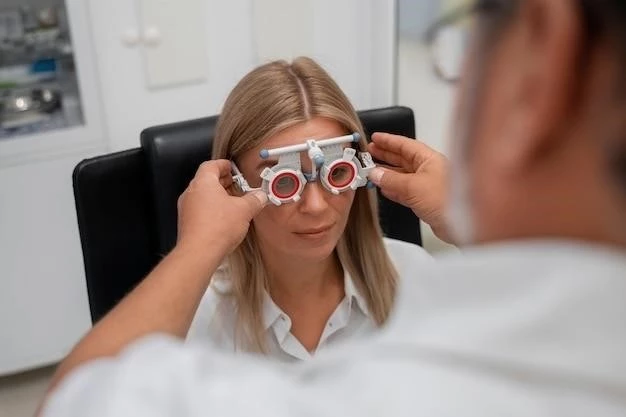Introduction
Optic neuritis involves inflammation of the optic nerve, impacting vision and causing pain․ Learn about the causes, symptoms, diagnosis, treatment, and links to conditions like multiple sclerosis․
Optic neuritis is an inflammation of the optic nerve that can cause eye pain, blurred vision, and color vision changes․ It may be associated with conditions like multiple sclerosis, infections, or autoimmune diseases․ Understanding the symptoms, diagnosis, treatment options, and potential complications of optic neuritis is crucial for maintaining optimal eye health․ Consulting with a healthcare professional for a proper evaluation and management plan is essential in addressing this condition effectively․
Causes and Risk Factors
Optic neuritis can be linked to conditions like multiple sclerosis, infections, or autoimmune diseases․ Understanding the underlying causes and potential risk factors associated with optic neuritis is essential for appropriate management and prevention strategies․
Optic neuritis is an inflammation of the optic nerve that can cause eye pain, blurred vision, and color vision changes․ It may be associated with conditions like multiple sclerosis, infections, or autoimmune diseases․ Understanding the symptoms, diagnosis, treatment options, and potential complications of optic neuritis is crucial for maintaining optimal eye health․ Consulting with a healthcare professional for a proper evaluation and management plan is essential in addressing this condition effectively․
Risk Factors for Developing Optic Neuritis
Optic neuritis may develop in individuals with a history of viral infections like mumps or measles, autoimmune diseases such as multiple sclerosis, or inflammatory processes affecting the optic nerve․ Understanding these risk factors can aid in early detection, proper management, and reducing the likelihood of developing optic neuritis complications․ Seeking guidance from healthcare providers for personalized risk assessment and preventive measures is crucial․
Overview of Optic Neuritis
Optic neuritis is an inflammation of the optic nerve that can cause eye pain, blurred vision, and color vision changes․ It may be associated with conditions like multiple sclerosis, infections, or autoimmune diseases․ Understanding the symptoms, diagnosis, treatment options, and potential complications of optic neuritis is crucial for maintaining optimal eye health․ Consulting with a healthcare professional for a proper evaluation and management plan is essential in addressing this condition effectively․
Common Symptoms of Optic Neuritis
Common symptoms of optic neuritis include eye pain, blurred vision, and changes in color vision․ These symptoms may worsen with heat or fatigue․ If experiencing any of these symptoms, seeking prompt evaluation and treatment from an ophthalmologist is essential to prevent complications and preserve visual health․
Diagnostic Procedures for Optic Neuritis
To diagnose optic neuritis, ophthalmologists conduct a thorough eye examination to evaluate visual acuity, color vision, pupil reactions, and visual field testing․ Additional diagnostic procedures may include imaging studies like MRI or CT scans to assess optic nerve inflammation and rule out other underlying conditions․ Electrodiagnostic tests like visual evoked potentials may also be performed to evaluate nerve function․ Seeking timely assessment and undergoing these diagnostic tests are essential for accurate diagnosis and appropriate management of optic neuritis․
Treatment Options
When diagnosed with optic neuritis, treatment options may include medications like corticosteroids to reduce inflammation and manage symptoms․ Additionally, other modalities such as intravenous therapy or plasma exchange may be recommended based on individual cases․ Seeking timely treatment and following healthcare provider recommendations are crucial for improving vision outcomes and overall eye health․
Medications for Optic Neuritis
Medications commonly prescribed for optic neuritis include corticosteroids like methylprednisolone to reduce inflammation and manage symptoms․ Intravenous therapy may also be recommended in severe cases to address optic nerve inflammation effectively․ It is crucial to follow the medication regimen as prescribed by healthcare providers to optimize treatment outcomes and aid in vision recovery․
Other Treatment Modalities
Aside from medications, other treatment modalities for optic neuritis may include intravenous therapy, plasma exchange, or symptom management strategies to address pain and discomfort․ It is essential to collaborate with healthcare providers to determine the most appropriate treatment approach based on individual needs and optimize the visual outcomes in cases of optic neuritis․

Prognosis and Recovery
Understanding the outlook for optic neuritis patients is crucial․ Recovery expectations may vary based on individual cases․ Seeking timely treatment and following healthcare provider recommendations are essential for optimizing recovery and visual outcomes․ It is important to monitor progress and address any concerns with your ophthalmologist to ensure the best recovery possible․
Outlook for Optic Neuritis Patients
Understanding the outlook for optic neuritis patients is essential for managing expectations․ Factors such as prompt diagnosis, appropriate treatment, and individual health conditions can influence the recovery process․ Collaborating closely with healthcare providers and adhering to treatment plans can enhance the recovery potential and improve visual outcomes in cases of optic neuritis․
Recovery Expectations
Recovery expectations for optic neuritis can vary depending on the underlying cause and individual factors․ Prompt diagnosis and appropriate treatment are crucial in optimizing recovery outcomes․ While some cases may resolve spontaneously, others may require medications like corticosteroids to aid in vision improvement․ Collaborating closely with healthcare providers and adhering to treatment plans can enhance the recovery process and minimize potential long-term visual complications․

Optic Neuritis in Relation to Multiple Sclerosis
Understanding the connection between optic neuritis and multiple sclerosis is vital․ Optic neuritis can be an early sign of multiple sclerosis, impacting central vision․ Learn about the symptoms, diagnosis, and treatment options related to optic neuritis and its association with multiple sclerosis to better manage vision health․
Connection Between Optic Neuritis and Multiple Sclerosis
Optic neuritis is commonly associated with multiple sclerosis, a neurological condition affecting the central nervous system․ Understanding the connection between these two conditions is crucial as optic neuritis can often serve as an early indicator of multiple sclerosis․ By recognizing this link, individuals can seek timely evaluation, diagnosis, and appropriate management to address both optic neuritis symptoms and potential underlying multiple sclerosis․
How Optic Neuritis Can Be an Early Sign of Multiple Sclerosis
Optic neuritis can act as an early sign of multiple sclerosis due to their significant association․ In some cases, optic neuritis manifests before other symptoms of multiple sclerosis, leading to its identification as an initial presentation of the condition․ Recognizing this connection enables healthcare professionals to consider further evaluation for multiple sclerosis in individuals presenting with optic neuritis, facilitating early diagnosis, intervention, and management of this neurological disorder․
Preventive Measures
Preventive measures for optic neuritis involve managing underlying conditions like multiple sclerosis or infections, adopting a healthy lifestyle, protecting the eyes from injuries, and attending regular eye exams․ Consult with healthcare providers to discuss personalized preventive strategies and ensure optimal eye health․
Ways to Prevent Optic Neuritis
Preventive measures for optic neuritis involve managing underlying conditions like multiple sclerosis or infections, adopting a healthy lifestyle, protecting the eyes from injuries, and attending regular eye exams․ Consult with healthcare providers to discuss personalized preventive strategies and ensure optimal eye health․
Reducing the Risk of Recurrence
Based on the information available, ″optic neuritis″ refers to the inflammation of the optic nerve, often linked to conditions like multiple sclerosis․ If experiencing symptoms, prompt evaluation by an ophthalmologist is crucial for diagnosis and treatment․ High dose IV methylprednisolone is a standard treatment to aid vision recovery in optic neuritis cases․ While some cases may resolve without treatment, consulting an ophthalmologist for personalized care is essential to prevent symptom worsening and preserve vision․
